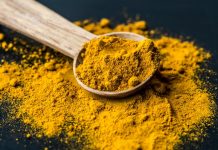
A recent study from scientists at Hebrew SeniorLife and Harvard suggests that a Mediterranean-style diet may help prevent frailty in older adults.
The research, led by Courtney L. Millar et al., was published in The American Journal of Clinical Nutrition.
Frailty, which affects 10–15% of older adults, is defined as an increased vulnerability resulting from a decline in function across multiple physiological systems. It can lead to numerous health complications.
The study included 2,384 participants from the Framingham Offspring Study who had Mediterranean-style dietary pattern scores and antioxidant intakes (vitamin C, E, and total carotenoids).
While the overall benefits of a Mediterranean-style diet are well known, its role in reducing frailty in older Americans who don’t typically consume such a diet was unclear.
The researchers found that each unit higher score on the Mediterranean Style Dietary Pattern Score, which indicates greater adherence to a Mediterranean-style diet, reduced the risk of frailty by 3%.
They also investigated whether specific antioxidants (carotenoids, vitamins E, and C) found in a Mediterranean-style diet are associated with frailty.
They found that a higher intake of carotenoids, antioxidants commonly found in brightly colored fruits and vegetables, was most strongly associated with a reduced risk of frailty development in middle-aged and older men and women.
Each 10-mg higher total carotenoid intake reduced the odds of frailty by 16%. Vitamins E and C did not have a significant association with frailty prevention.
The team concluded that increasing the intake of brightly colored fruits and vegetables, which are rich in carotenoids and other bioactive compounds, might improve the health of older adults.
A Mediterranean-style diet, which encourages the consumption of fruits and vegetables, could potentially prevent the development of frailty with aging.
Follow us on Twitter for more articles about this topic.
Copyright © 2023 Knowridge Science Report. All rights reserved.








